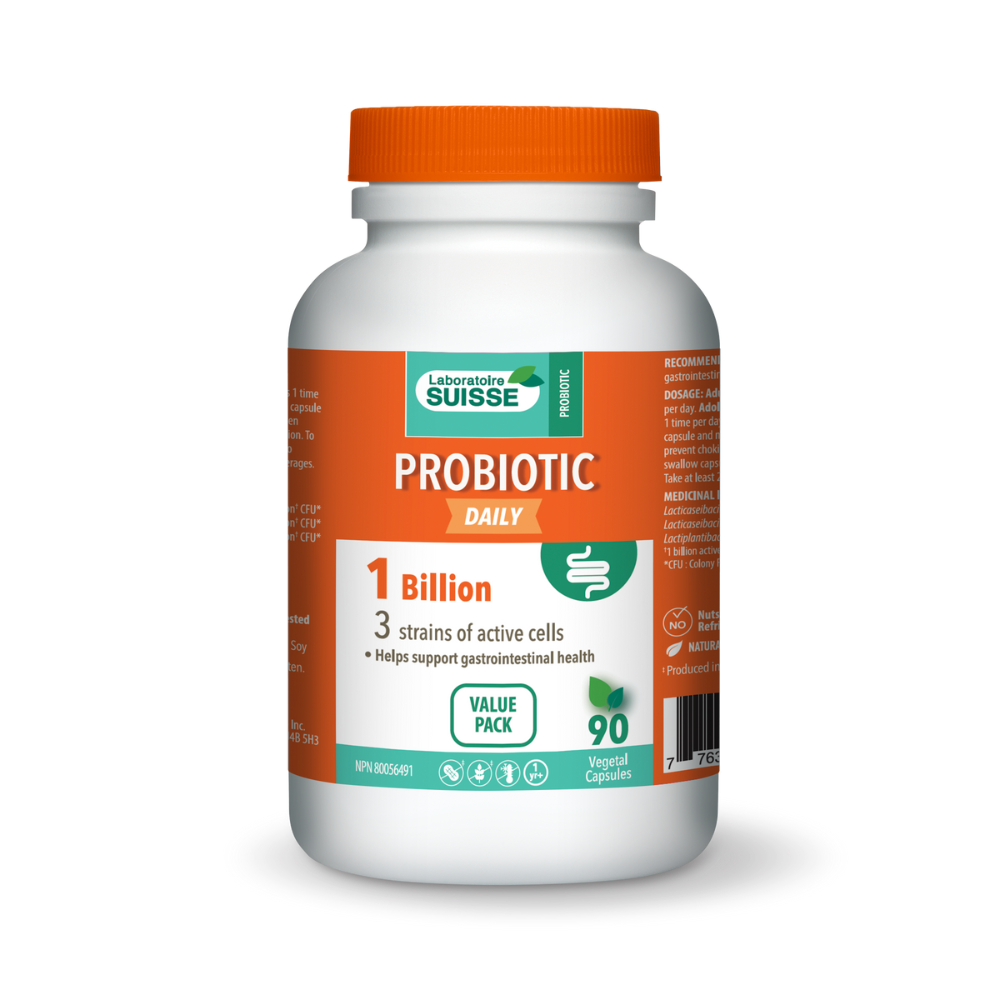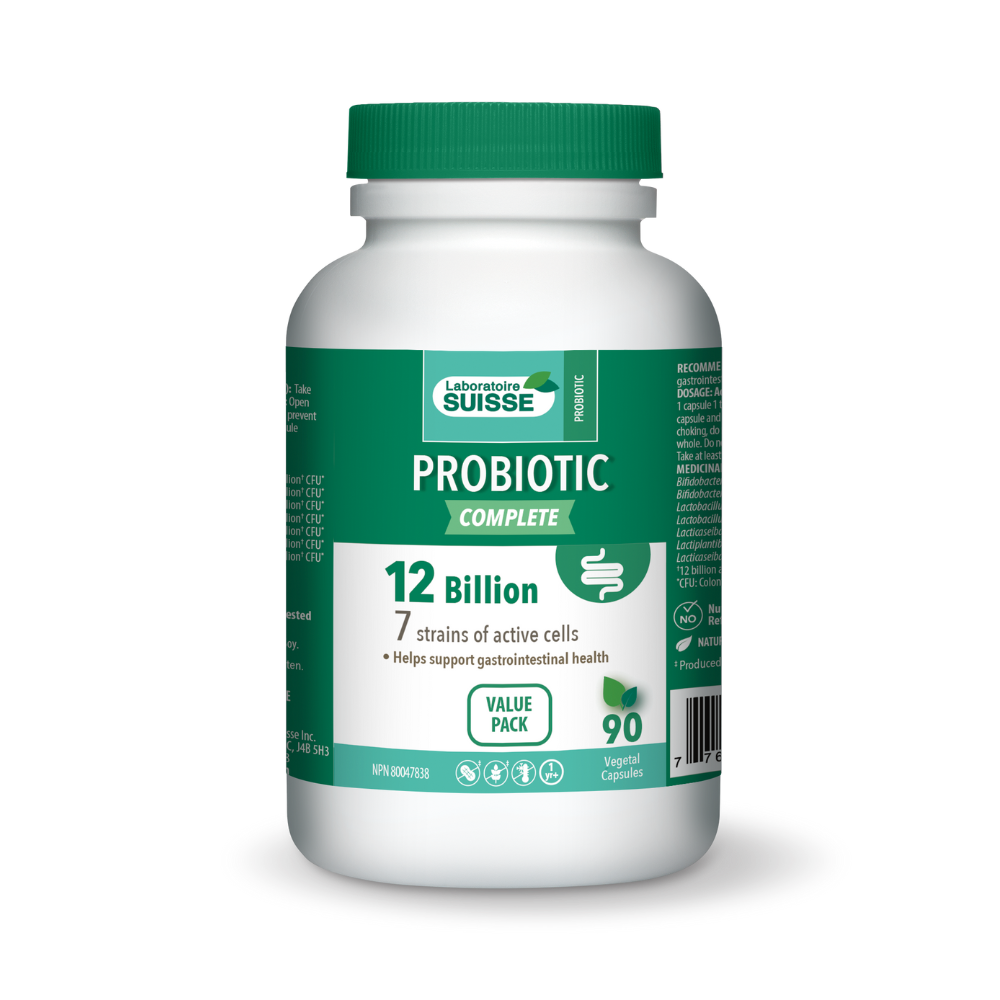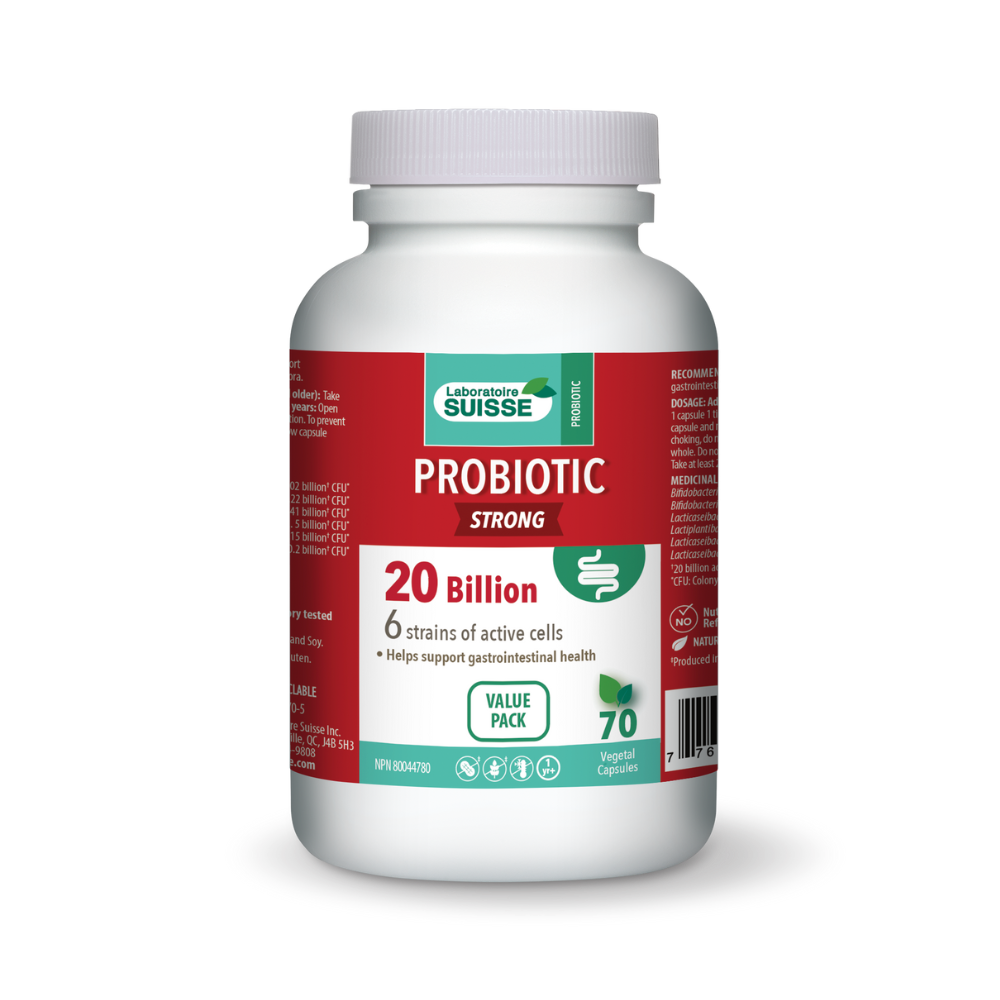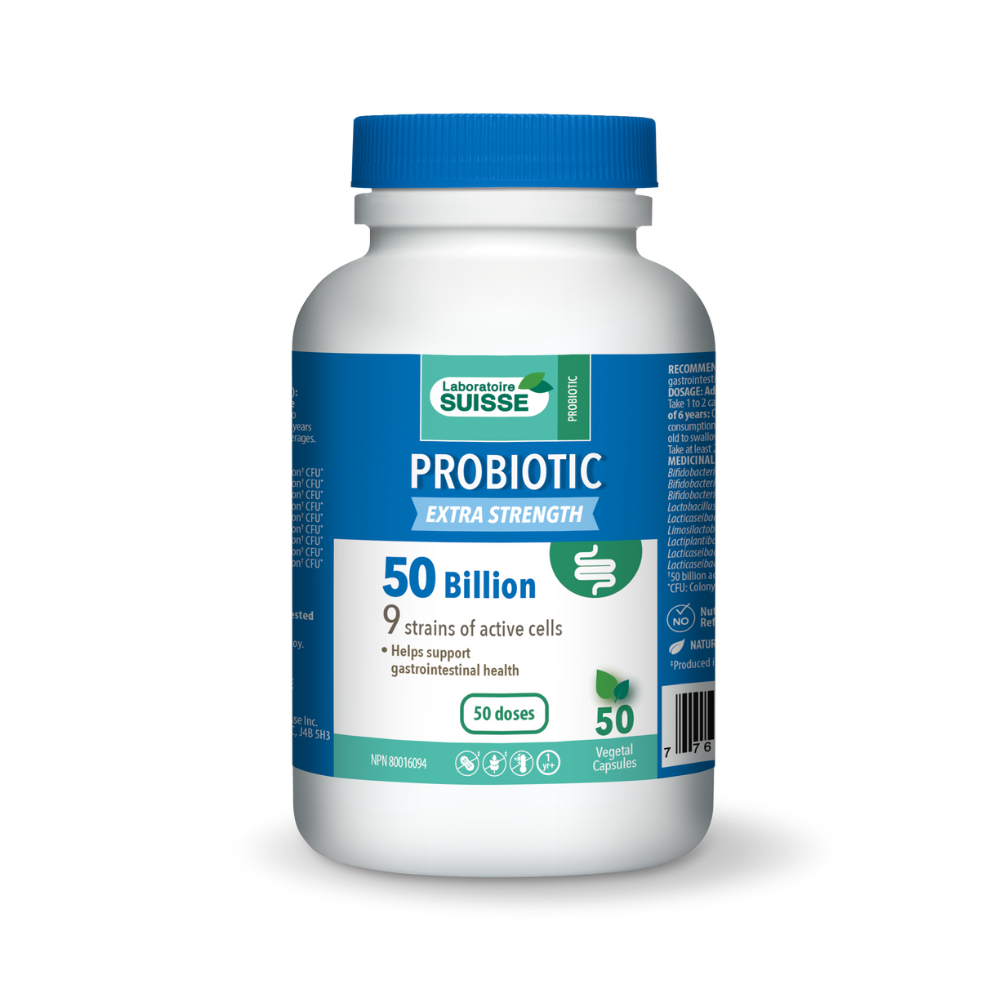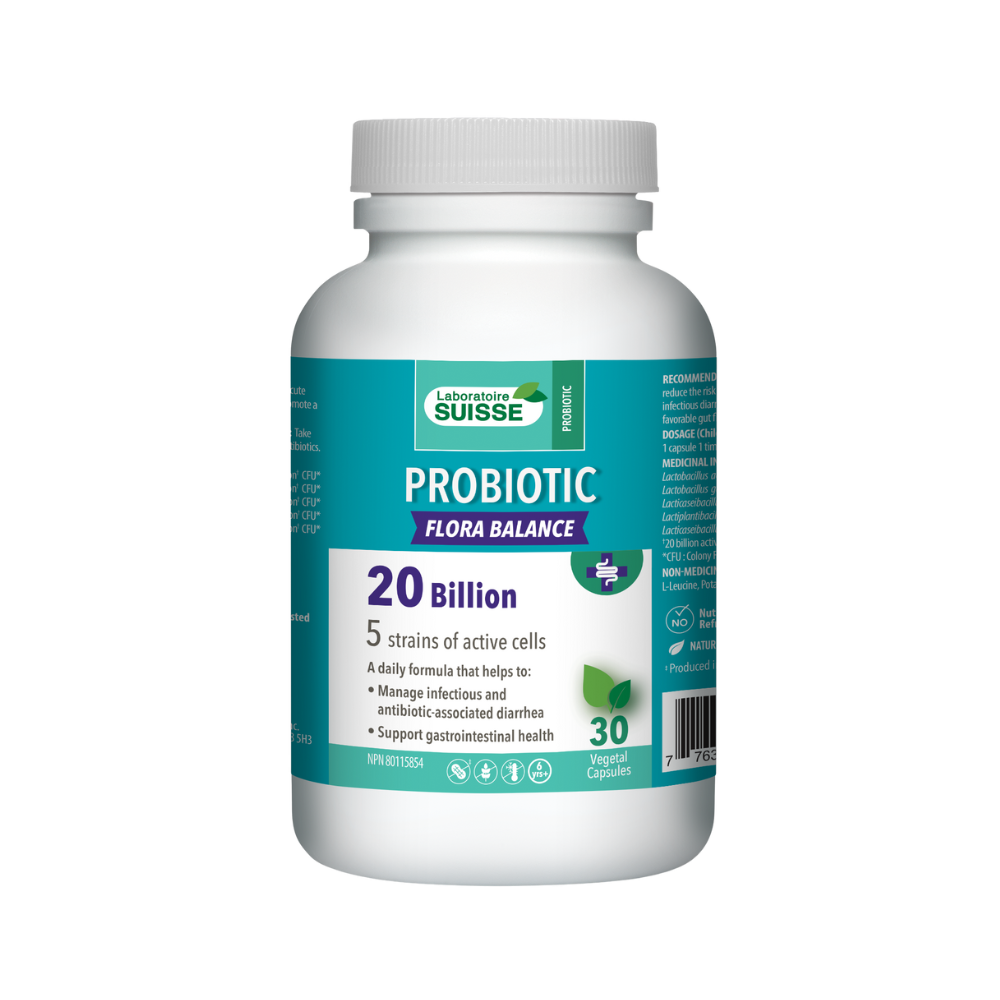
Local probiotics, made for local people!
Designed to help support your gastrointestinal health
What is a probiotic?
Probiotics are live microorganisms that, when taken in sufficient amounts, can offer several health benefits.
Certain situations can disrupt the balance of the microbiota and lead to digestive issues.
Probiotics can help, among other things, to restore the balance between good and bad bacteria.

Local probiotics, made for local people
Designed to help support your gastrointestinal health.
What is a probiotic ?
Probiotics are live microorganisms that, when taken in sufficient amounts, can offer several health benefits.
Certain situations can disrupt the balance of the microbiota and lead to digestive issues.
Probiotics can help, among other things, to restore the balance between good and bad bacteria.

Why choose Laboratoire Suisse probiotics ?

Authorized for sale by Health Canada
All our products have been reviewed by our team of experts for quality and approved for sale by Health Canada.







7 distinct probiotics designed by and for Canadians
We offer a certified Manufactured in Quebec range with different formulas suitable for various situations.
Adopted by many
Which of our probiotics might suit you?
Since each person has a unique microbiota, we offer several probiotic formulas.
Refer to the table below and consult your healthcare professional to find the option that would be suitable for you.
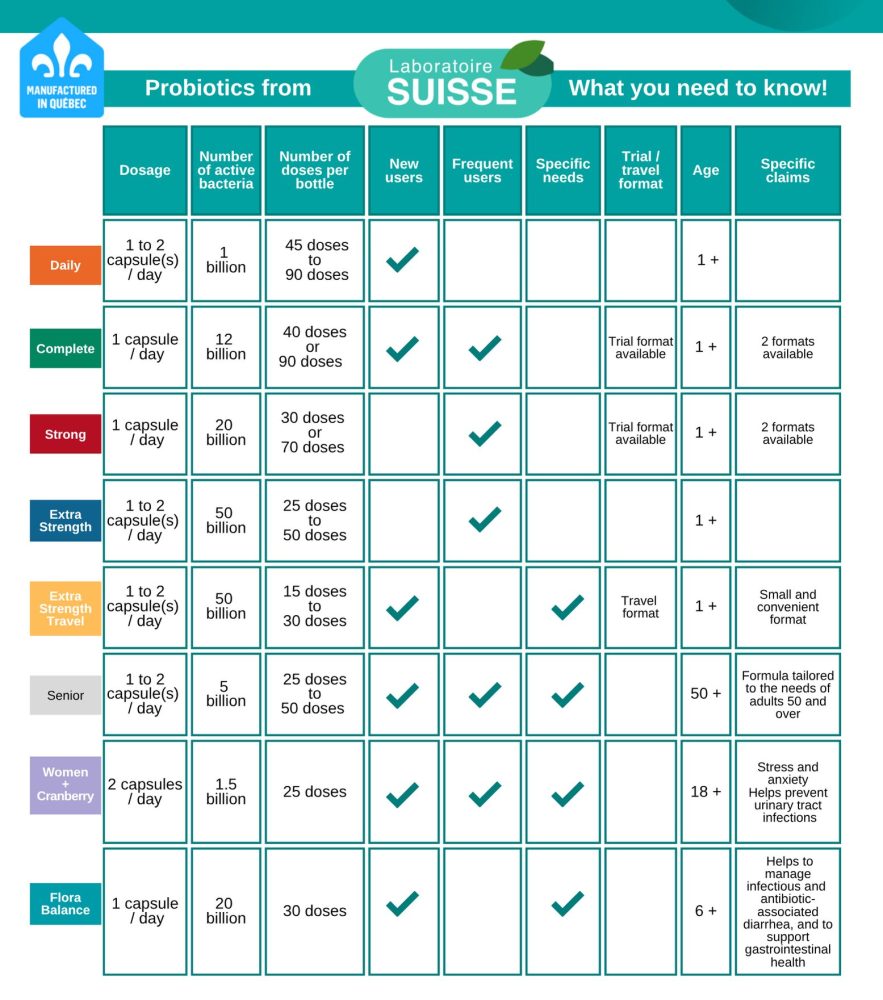
Dosage | Number of active bacteria | Number of doses per bottle | New users | Frequent users | Specific needs | Age | Specific claims | |
|---|---|---|---|---|---|---|---|---|
Daily | 1 to 2 capsule(s)/day | 1 billion | 45 to 90 doses | 1 + | ||||
Complete | 1 capsule/day | 12 billion | 40 or 90 doses | 1 + | 2 formats available | |||
Strong | 1 capsule/day | 20 billion | 30 or 70 doses | 1 + | 2 formats available | |||
Extra Strength | 1 to 2 capsule(s)/day | 50 billion | 25 to 50 doses | 1 + | ||||
Extra Strength Travel | 1 to 2 capsule(s)/day | 50 billion | 15 to 30 doses | 1 + | Small and convenient format | |||
Senior | 1 to 2 capsule(s)/day | 5 billion | 25 to 50 doses | 50 + | Formula tailored to the needs of adults 50 and over | |||
Women + Cranberry | 2 capsules/day | 1,5 billion | 25 doses | 18 + | Stress and anxiety Helps prevent urinary tract infections | |||
Flora Balance | 1 capsule/day | 20 billion | 30 doses | 6 + | Helps to manage infectious and
antibiotic-associated diarrhea, and to support gastrointestinal health |
A variety of strains for a variety of situations
Because every person is unique
The strain used in a probiotic is responsible for the benefits associated with it. The more strains a probiotic contains, the broader the range of individuals who can benefit from it.
The choice of strain* will depend on the symptoms you want to relieve, health conditions, and age.
Lactobacilli and bifidobacteria, among the most studied strains, are also present in the majority of our formulas.
*Always read product labels and consult your healthcare professional.
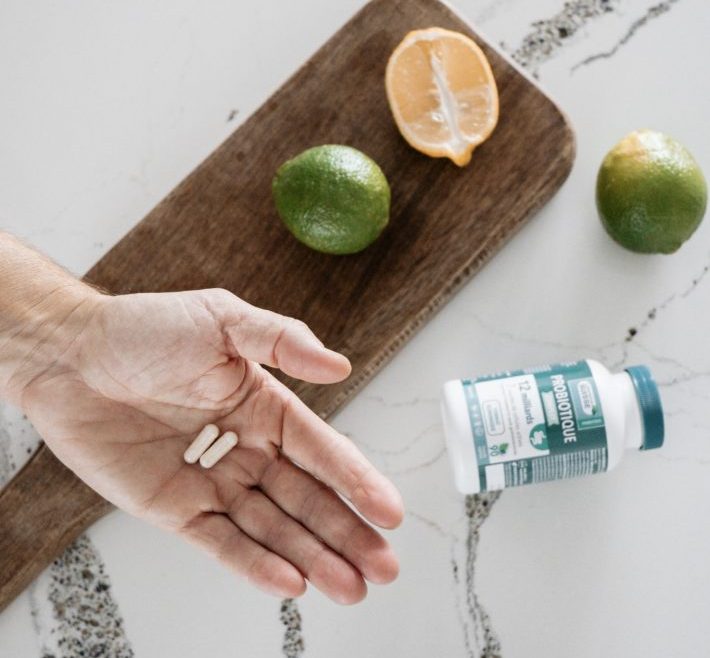
The strain used in a probiotic is responsible for the benefits associated with it. The more strains a probiotic contains, the broader the range of individuals who can benefit from it.
The choice of strain* will depend on the symptoms you want to relieve, health conditions, and age.
Lactobacilli and bifidobacteria, among the most studied strains, are also present in the majority of our formulas.

*Always read product labels and consult your healthcare professional.
Hover on the strains below to learn more
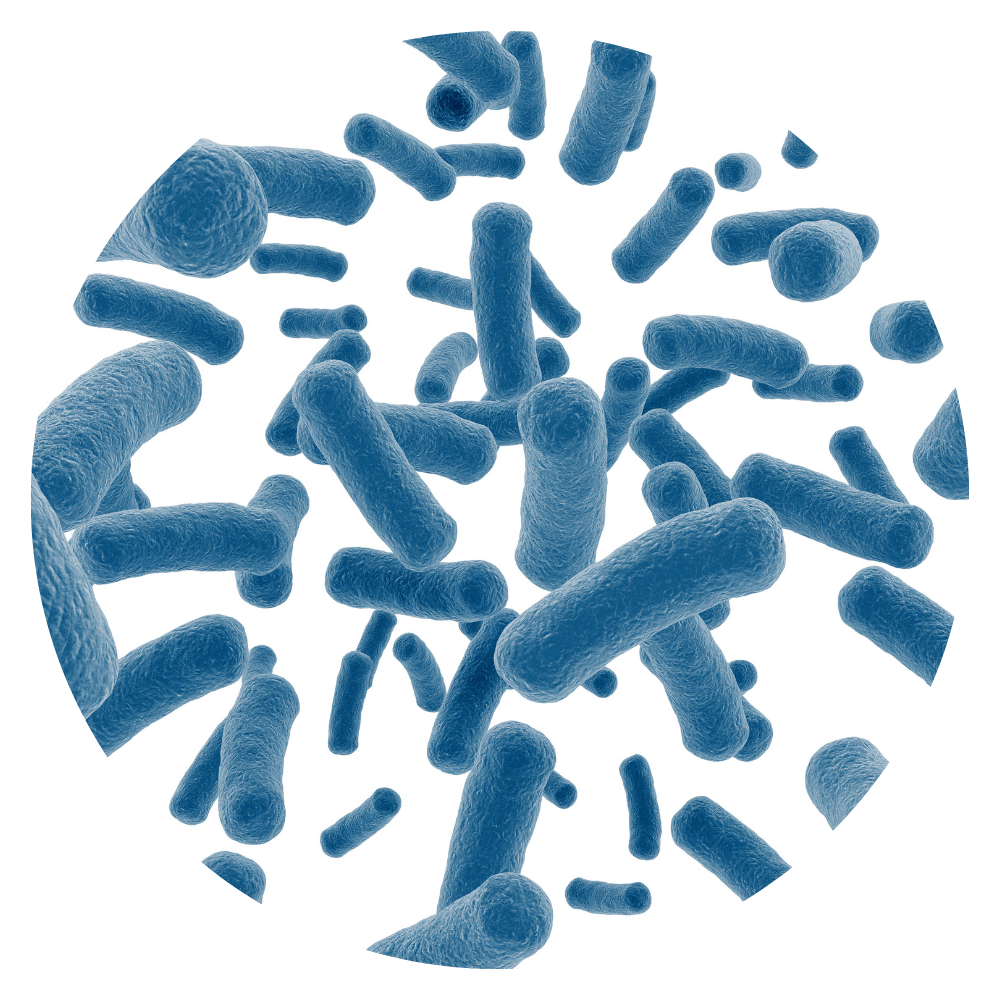
Lactiplantibacillus plantarum
A clinical study found that taking L. plantarum for 12 weeks could help improve overall and visual memory, while also lowering inflammation in adults experiencing early memory decline29. Other studies suggest that L. plantarum has anti-inflammatory effects, which could help reduce stress and anxiety, as well as boost cognitive function30.
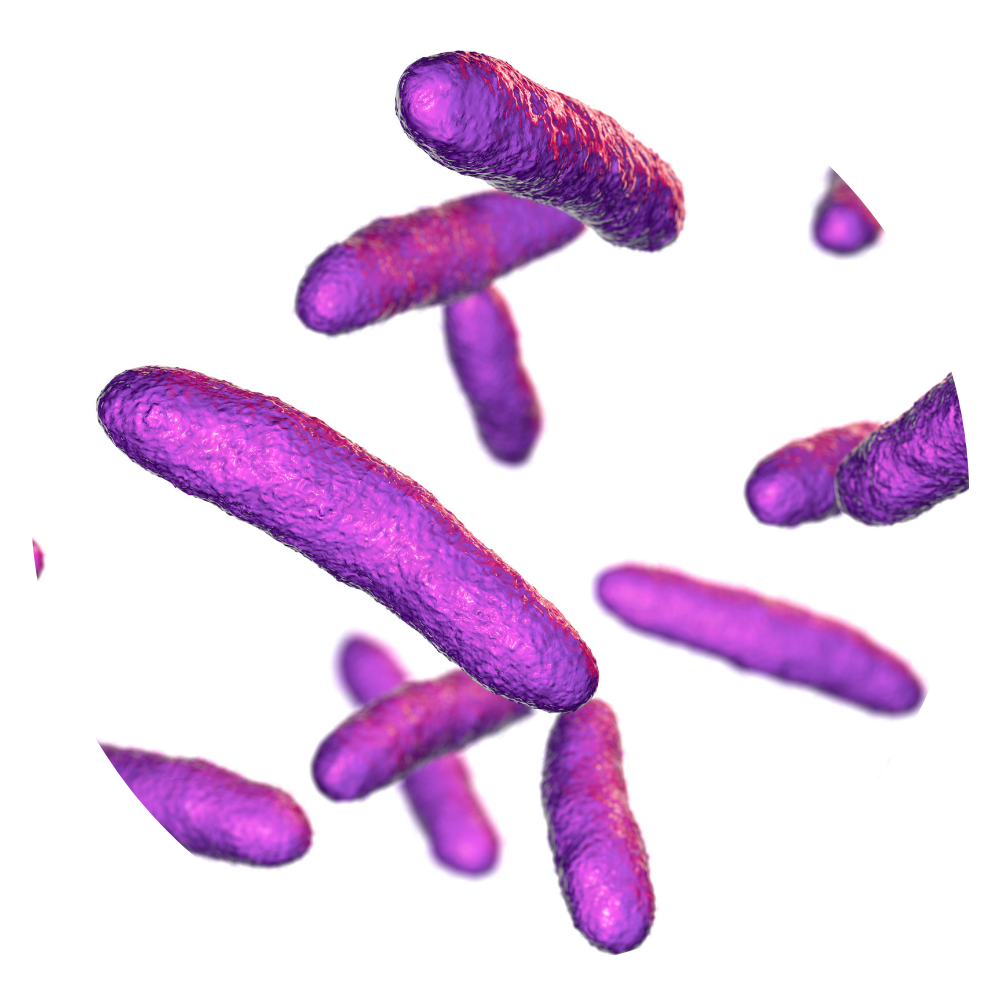
Lactobacillus Helveticus
Several lab studies and studies on real people confirm that L. Helveticus strain might affect both the vaginal area and the intestines31. Also, another study found that combining L. Helveticus with B. Longum could help reduce symptoms of depression32.
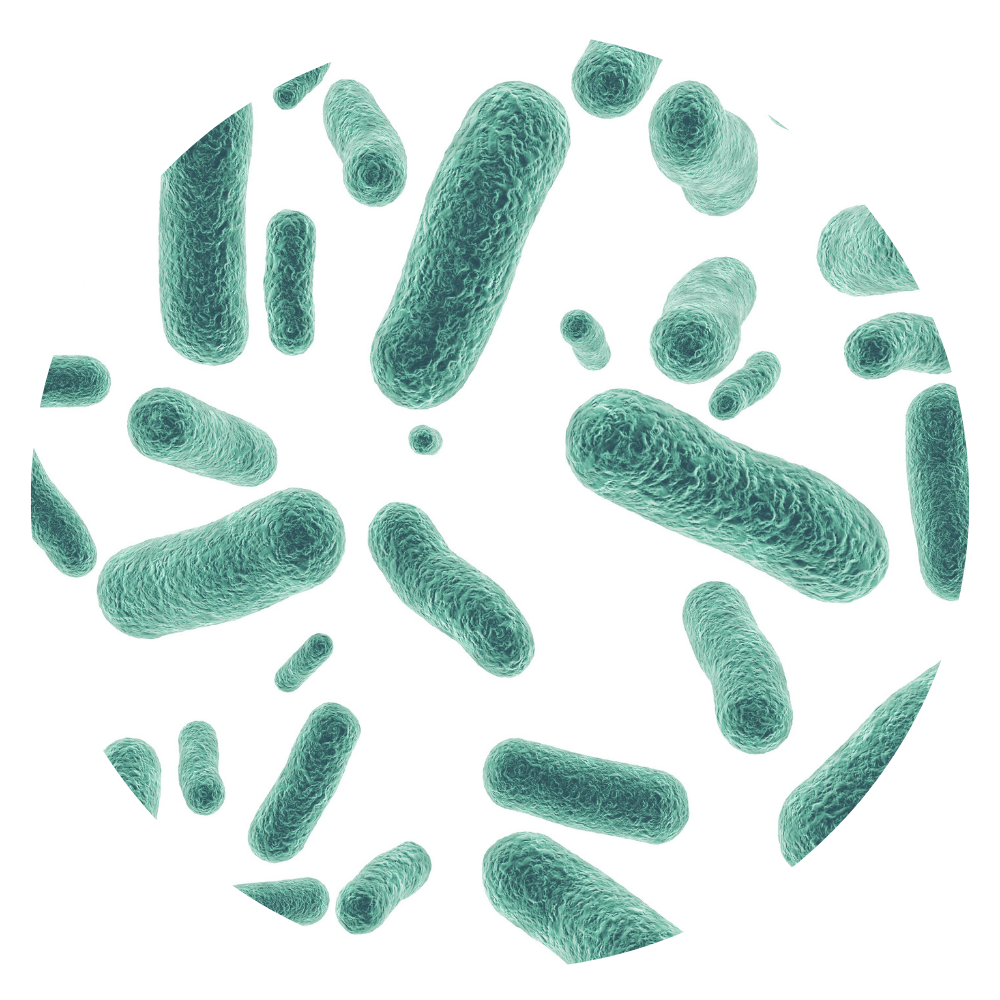
Lacticaseibacillus paracasei
Studies found that taking 2 billion CFU of the probiotic L. Paracasei every day for 5 weeks could help reduce hay fever symptoms24, especially eye irritation, when used alongside antihistamine treatment. Another study showed that a daily dose of 1 billion CFU of L. Plantarum and L. Paracasei combined might help protect adults who often catch colds from getting sick as frequently25.
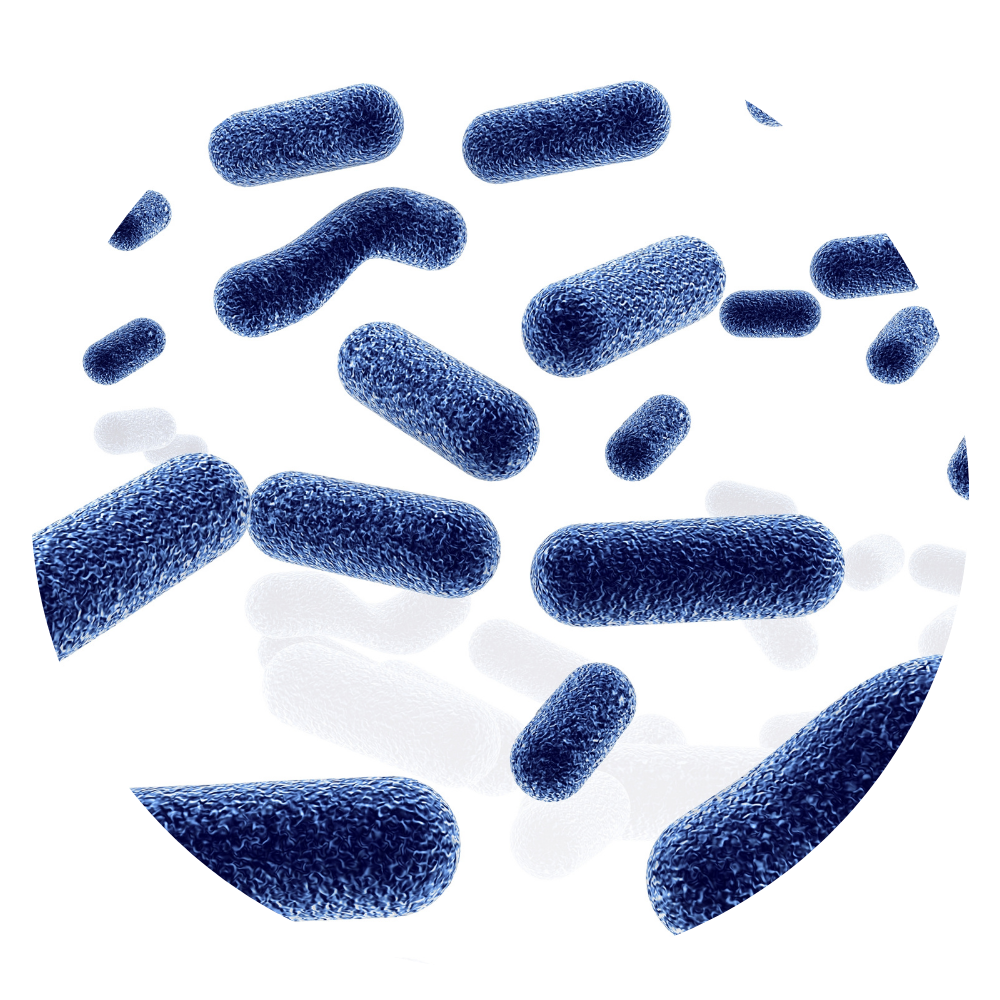
Bifidobacterium Breve
A clinical study suggests that taking B. breve could help reduce abdominal fat and improve body composition in healthy individuals who are slightly overweight5. Additionally, a pilot study showed that B. breve helped reduce abdominal pain and improve bowel movements in 20 children with functional constipation6.
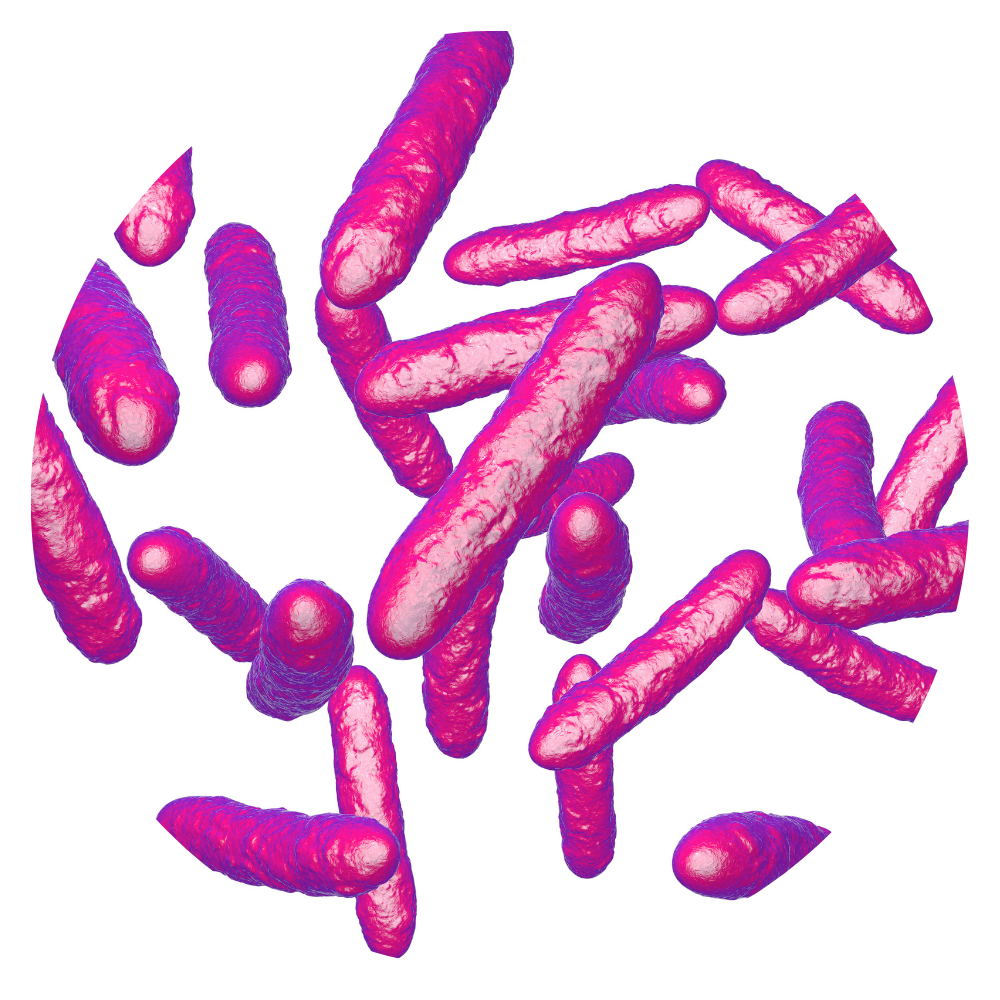
Bifidobacterium longum subsp, longum
A clinical study found that taking B. longum led to a noticeable increase in bowel movements for patients who had infrequent defecation ((≤ 4 times/week), compared to those taking a placebo7. Another study showed that patients who took B. longum had a significant improvement in their ulcerative colitis symptoms by week 8, with a marked reduction in rectal bleeding8.
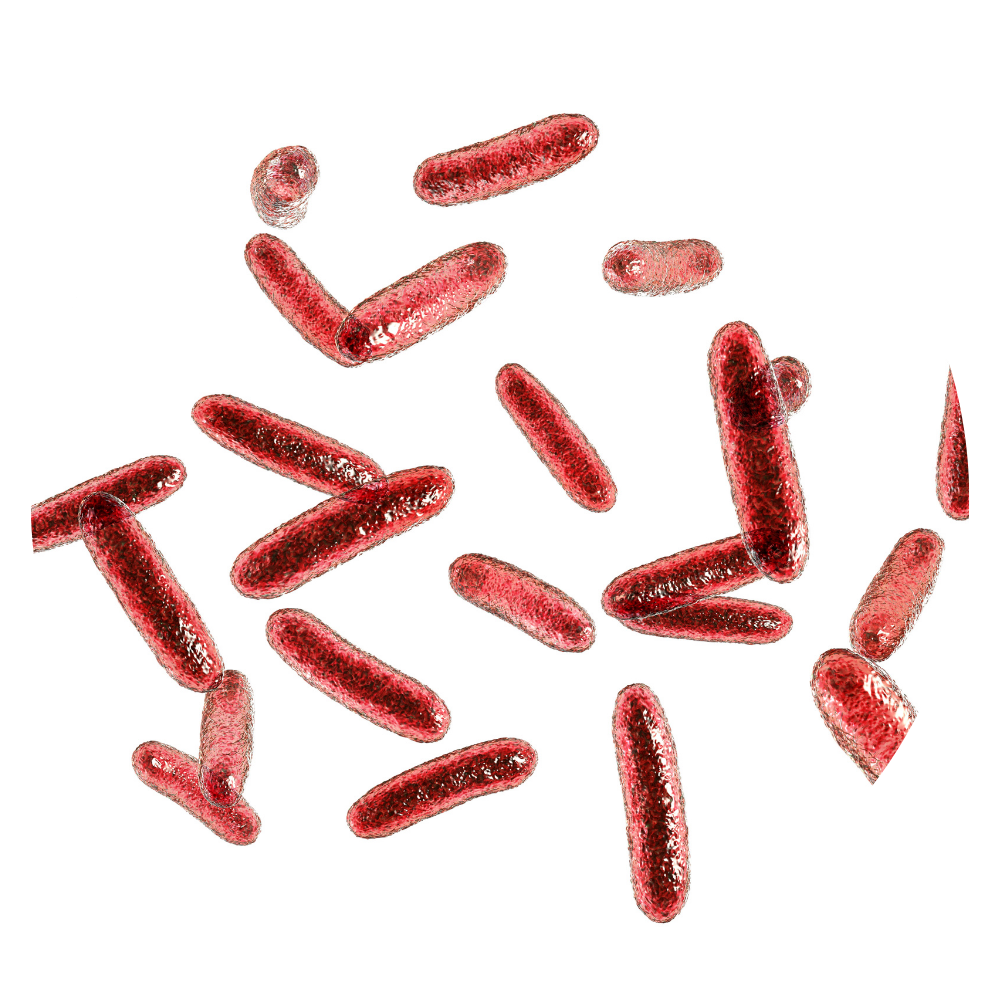
Lacticaseibacillus rhamnosus GG
L. Rhamnosus (LGG) is a well-studied probiotic that helps the digestive system26. A clinical study on kids with severe diarrhea showed that LGG could help shorten the illness and make it less severe27. Another study with 60 people, aged 12 to 40, who had an H. pylori infection found that taking LGG helped reduce the side effects of their treatment, especially diarrhea28.
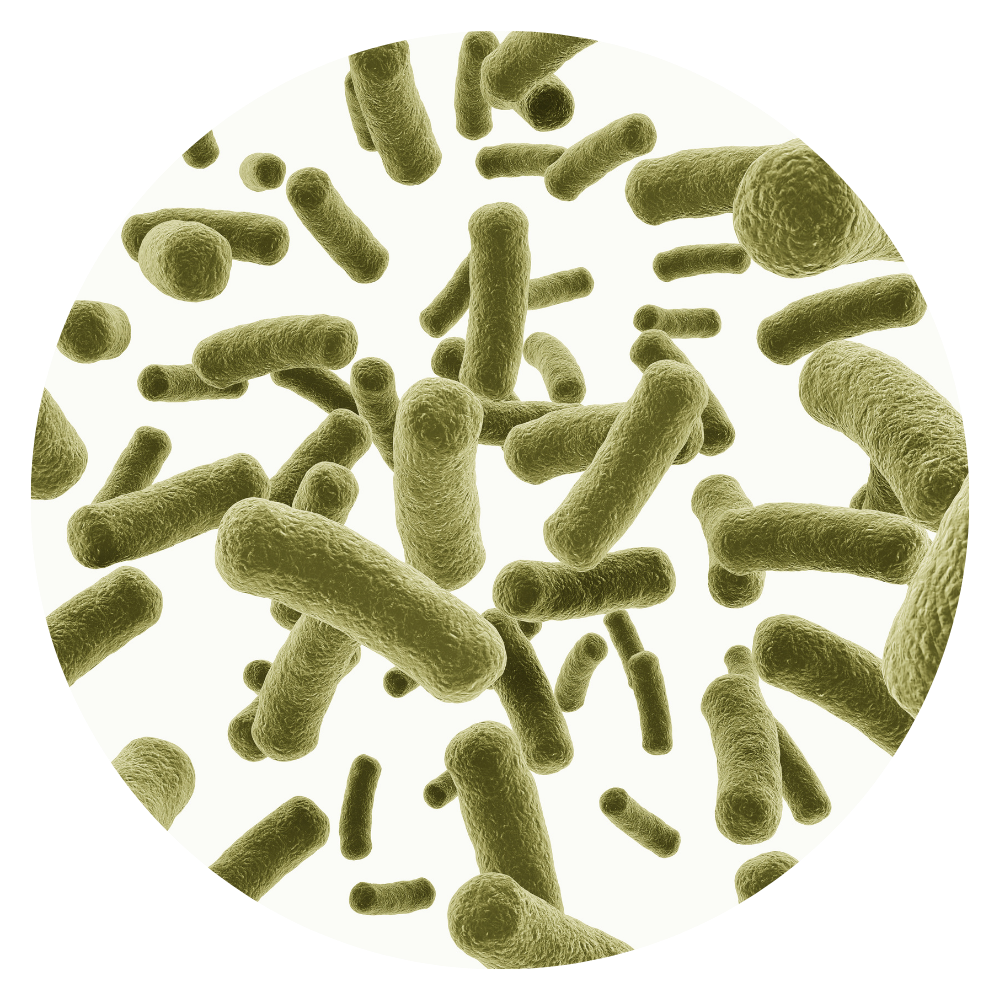
Bifidobacterium animalis subsp. lactis
It has been shown that levels of Bifidobacterium, a bacterium that plays an important role in maintaining and protecting human intestinal health, decrease with age1. Additionally, a pre-clinical study suggests that B. lactis may reduce gastric inflammation caused by an H. pylori infection3.
It has been shown that as we age, the amount of Bifidobacterium, a bacteria that helps keep our gut healthy, goes down1. A pre-clinical study also suggests that B. lactis might help reduce stomach inflammation caused by an H. pylori infection4.
Discover our different strains
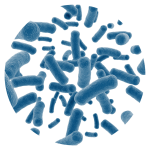
Lactiplantibacillus plantarum
A clinical study found that taking L. plantarum for 12 weeks could help improve overall and visual memory, while also lowering inflammation in adults experiencing early memory decline29. Other studies suggest that L. plantarum has anti-inflammatory effects, which could help reduce stress and anxiety, as well as boost cognitive function30.
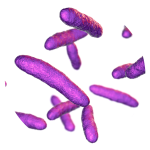
Lactobacillus Helveticus
Several lab studies and studies on real people confirm that L. Helveticus strain might affect both the vaginal area and the intestines31. Also, another study found that combining L. Helveticus with B. Longum could help reduce symptoms of depression32.
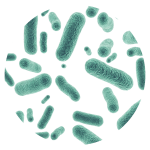
Lacticaseibacillus paracasei
Studies found that taking 2 billion CFU of the probiotic L. Paracasei every day for 5 weeks could help reduce hay fever symptoms24, especially eye irritation, when used alongside antihistamine treatment. Another study showed that a daily dose of 1 billion CFU of L. Plantarum and L. Paracasei combined might help protect adults who often catch colds from getting sick as frequently25.
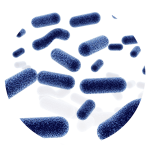
Bifidobacterium Breve
A clinical study suggests that taking B. breve could help reduce abdominal fat and improve body composition in healthy individuals who are slightly overweight5. Additionally, a pilot study showed that B. breve helped reduce abdominal pain and improve bowel movements in 20 children with functional constipation6.
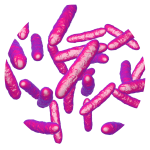
Bifidobacterium longum subsp, longum
A clinical study found that taking B. longum led to a noticeable increase in bowel movements for patients who had infrequent defecation ((≤ 4 times/week), compared to those taking a placebo7. Another study showed that patients who took B. longum had a significant improvement in their ulcerative colitis symptoms by week 8, with a marked reduction in rectal bleeding8.
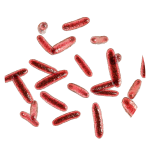
Lacticaseibacillus rhamnosus GG
L. Rhamnosus (LGG) is a well-studied probiotic that helps the digestive system26. A clinical study on kids with severe diarrhea showed that LGG could help shorten the illness and make it less severe27. Another study with 60 people, aged 12 to 40, who had an H. pylori infection found that taking LGG helped reduce the side effects of their treatment, especially diarrhea28.
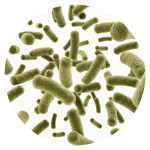
Bifidobacterium animalis subsp. lactis
It has been shown that levels of Bifidobacterium, a bacterium that plays an important role in maintaining and protecting human intestinal health, decrease with age1. Additionally, a pre-clinical study suggests that B. lactis may reduce gastric inflammation caused by an H. pylori infection3.
Your favorite products, closer than you think!

A symbol of pride and quality
« Manufactured in Quebec »
To obtain this certification, the Manufactured in Quebec product must be a manufactured product whose last substantial transformation take place in Quebec.
Look for the “Manufactured in Quebec” icon on all our locally made products and contribute to both your well-being and the Quebec economy.
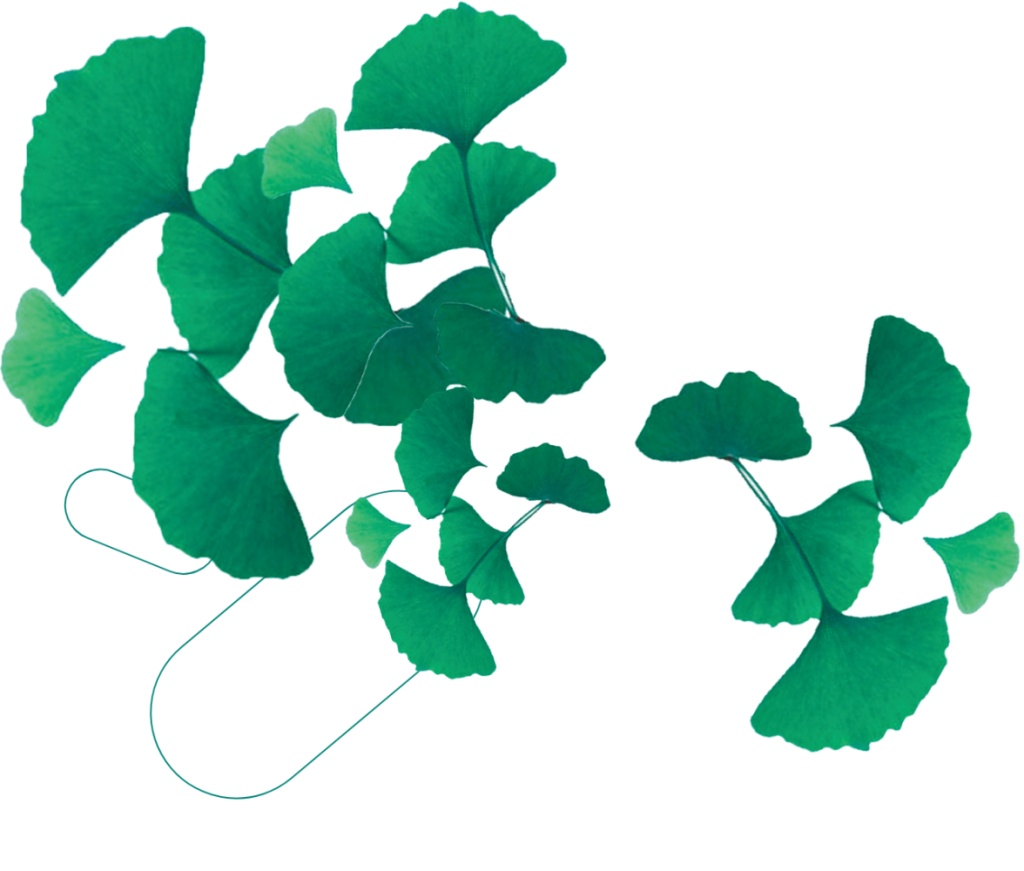
To learn more on probiotics
Discover our articles on the subject or watch our health segment «Understanding the Effects of Probiotics on the Intestinal Microbiota »

How Feeding Your Gut Bacteria Can Lead to Better Health
Global dietary trends indicate that digestive health is becoming increasingly significant in overall health indicators. Now, more than ever, consumers are adopting a preventive rather than reactive approach to...
The Intestinal Microbiota: A Key Player in Our Overall Health!
The microbiota is at the heart of our overall health. Comprising all the bacteria, viruses, parasites, and yeasts that inhabit our digestive tract, its functions go far beyond digestive...

References
3. Arboleya, S., Watkins, C., Stanton, C., & Ross, R. P. (2016). Gut Bifidobacteria Populations in Human Health and Aging. Frontiers in microbiology, 7, 1204. https://doi.org/10.3389/fmicb.2016.01204
4. Zhang L, Su P, Henriksson A, O’Rourke J, Mitchell H. Investigation of the immunomodulatory effects of Lactobacillus casei and Bifidobacterium lactis on Helicobacter pylori infection. Helicobacter. 2008 Jun;13(3):183-90. doi: 10.1111/j.1523-5378.2008.00595.x. PMID: 18466393.
5. Minami J, Iwabuchi N, Tanaka M, Yamauchi K, Xiao JZ, Abe F, Sakane N. Effects of Bifidobacterium breve B-3 on body fat reductions in pre-obese adults: a randomized, double-blind, placebo-controlled trial. Biosci Microbiota Food Health. 2018;37(3):67-75. doi: 10.12938/bmfh.18-001. Epub 2018 May 8. PMID: 30094122; PMCID: PMC6081611.
6. Tabbers MM, de Milliano I, Roseboom MG, Benninga MA. Is Bifidobacterium breve effective in the treatment of childhood constipation? Results from a pilot study. Nutr J. 2011 Feb 23;10:19. doi: 10.1186/1475-2891-10-19. PMID: 21345213; PMCID: PMC3048518.
7. Kondo J, Xiao JZ, Shirahata A, Baba M, Abe A, Ogawa K, Shimoda T. Modulatory effects of Bifidobacterium longum BB536 on defecation in elderly patients receiving enteral feeding. World J Gastroenterol. 2013;19(14):2162-70. doi: 10.3748/wjg.v19.i14.2162. PMID: 23599642; PMCID: PMC3627880.
8. Tamaki H, Nakase H, Inoue S, Kawanami C, Itani T, Ohana M, Kusaka T, Uose S, Hisatsune H, Tojo M, Noda T, Arasawa S, Izuta M, Kubo A, Ogawa C, Matsunaka T, Shibatouge M. Efficacy of probiotic treatment with Bifidobacterium longum 536 for induction of remission in active ulcerative colitis: A randomized, double-blinded, placebo-controlled multicenter trial. Dig Endosc. 2016 Jan;28(1):67-74. doi: 10.1111/den.12553. Epub 2015 Nov 2. PMID: 26418574.
24. Costa, D. J., Marteau, P., Amouyal, M., Poulsen, L. K., Hamelmann, E., Cazaubiel, M., Housez, B., Leuillet, S., Stavnsbjerg, M., Molimard, P., Courau, S., & Bousquet, J. (2014). Efficacy and safety of the probiotic Lactobacillus paracasei LP-33 in allergic rhinitis: a double-blind, randomized, placebo-controlled trial (GA2LEN Study). European journal of clinical nutrition, 68(5), 602–607.
https://doi.org/10.1038/ejcn.2014.13
25. Ahrén, I. L., Hillman, M., Nordström, E. A., Larsson, N., & Niskanen, T. M. (2020). Fewer community-acquired colds with daily consumption of Lactiplantibacillus Plantarum Heal9 and Lacticaseibacillus Paracasei 8700:2. A randomized, placebo-controlled clinical trial. OUP Academic.
https://academic.oup.com/jn/article/151/1/214/6029137
26. Segers, M. E., & Lebeer, S. (2014). Towards a better understanding of Lactobacillus rhamnosus GG–host interactions. Microbial cell factories, 13 Suppl 1(Suppl 1), S7. https://doi.org/10.1186/1475-2859-13-S1-S7
27. Guandalini, S., Pensabene, L., Zikri, M. A., Dias, J. A., Casoali, L. G., Hoekstra, H., Kolacek, S., Massar, K., Micetic-Turk, D., Papadopoulou, A., de Sousa, J. S., Sandhu, B., Szajewska, H., & Weizman, Z. (2000). Lactobacillus GG administered in oral rehydration solution to children with acute diarrhea: a multicenter European trial. Journal of pediatric gastroenterology and nutrition, 30(1), 54–60. https://doi.org/10.1097/00005176-200001000-00018
28. Armuzzi, A., Cremonini, F., Bartolozzi, F., Canducci, F., Candelli, M., Ojetti, V., Cammarota, G., Anti, M., De Lorenzo, A., Pola, P., Gasbarrini, G., & Gasbarrini, A. (2001). The effect of oral administration of Lactobacillus GG on antibiotic-associated gastrointestinal side-effects during Helicobacter pylori eradication therapy. Alimentary pharmacology & therapeutics, 15(2), 163–169. https://doi.org/10.1046/j.1365-2036.2001.00923.x
29. Sakurai K, Toshimitsu T, Okada E, Anzai S, Shiraishi I, Inamura N, Kobayashi S, Sashihara T, Hisatsune T. Effects of Lactiplantibacillus plantarum OLL2712 on Memory Function in Older Adults with Declining Memory: A Randomized Placebo-Controlled Trial. Nutrients. 2022; 14(20):4300. Cruchet, S., Furnes, R., Maruy, A., Hebel, E., Palacios, J., Medina, F., Ramirez, N., Orsi, M., Rondon, L., Sdepanian, V., Xóchihua, L., Ybarra, M., & Zablah, R. A. (2015). The use of probiotics in pediatric gastroenterology: a review of the literature and recommendations by Latin-American experts. Paediatric drugs, 17(3), 199–216. https://doi.org/10.1007/s40272-015-0124-6
30. Lew LC, Hor YY, Yusoff NAA, Choi SB, Yusoff MSB, Roslan NS, Ahmad A, Mohammad JAM, Abdullah MFIL, Zakaria N, Wahid N, Sun Z, Kwok LY, Zhang H, Liong MT. Probiotic Lactobacillus plantarum P8 alleviated stress and anxiety while enhancing memory and cognition in stressed adults: A randomised, double-blind, placebo-controlled study. Clin Nutr. 2019 Oct;38(5):2053-2064. doi: 10.1016/j.clnu.2018.09.010. Epub 2018 Sep 19. PMID: 30266270.
31. Taverniti V, Guglielmetti S. Health-Promoting Properties of Lactobacillus helveticus. Front Microbiol. 2012 Nov 19;3:392. doi: 10.3389/fmicb.2012.00392. PMID: 23181058; PMCID: PMC3500876.
32. Wallace CJK, Milev RV. The Efficacy, Safety, and Tolerability of Probiotics on Depression: Clinical Results From an Open-Label Pilot Study. Front Psychiatry. 2021 Feb 15;12:618279. doi: 10.3389/fpsyt.2021.618279. PMID: 33658952; PMCID: PMC7917127.
34. Sakurai K, Toshimitsu T, Okada E, Anzai S, Shiraishi I, Inamura N, Kobayashi S, Sashihara T, Hisatsune T. Effects of Lactiplantibacillus plantarum OLL2712 on Memory Function in Older Adults with Declining Memory: A Randomized Placebo-Controlled Trial. Nutrients. 2022; 14(20):4300. Cruchet, S., Furnes, R., Maruy, A., Hebel, E., Palacios, J., Medina, F., Ramirez, N., Orsi, M., Rondon, L., Sdepanian, V., Xóchihua, L., Ybarra, M., & Zablah, R. A. (2015). The use of probiotics in pediatric gastroenterology: a review of the literature and recommendations by Latin-American experts. Paediatric drugs, 17(3), 199–216. https://doi.org/10.1007/s40272-015-0124-6
35. Lew LC, Hor YY, Yusoff NAA, Choi SB, Yusoff MSB, Roslan NS, Ahmad A, Mohammad JAM, Abdullah MFIL, Zakaria N, Wahid N, Sun Z, Kwok LY, Zhang H, Liong MT. Probiotic Lactobacillus plantarum P8 alleviated stress and anxiety while enhancing memory and cognition in stressed adults: A randomised, double-blind, placebo-controlled study. Clin Nutr. 2019 Oct;38(5):2053-2064. doi: 10.1016/j.clnu.2018.09.010. Epub 2018 Sep 19. PMID: 30266270.



